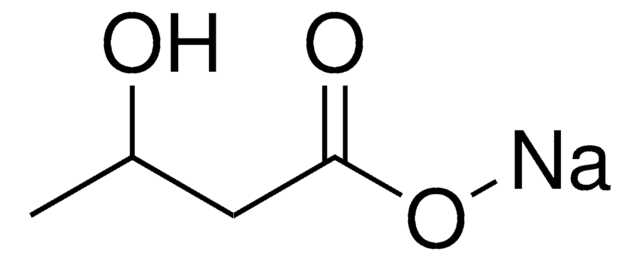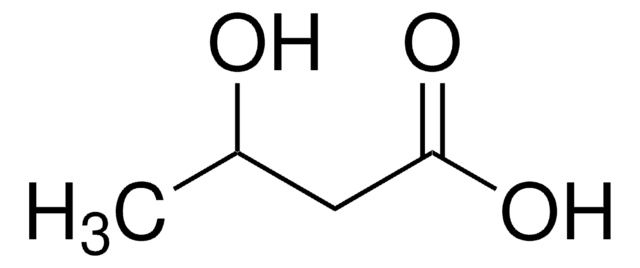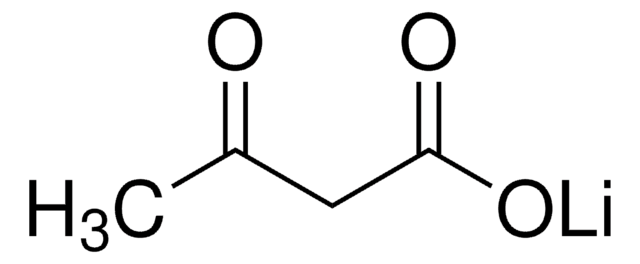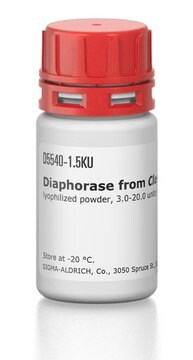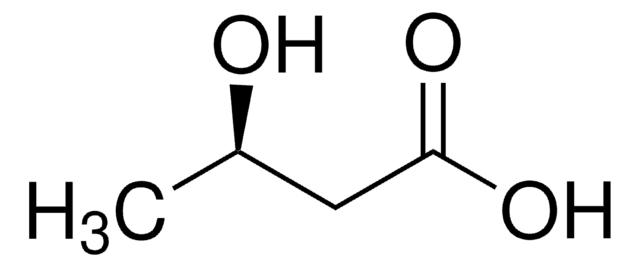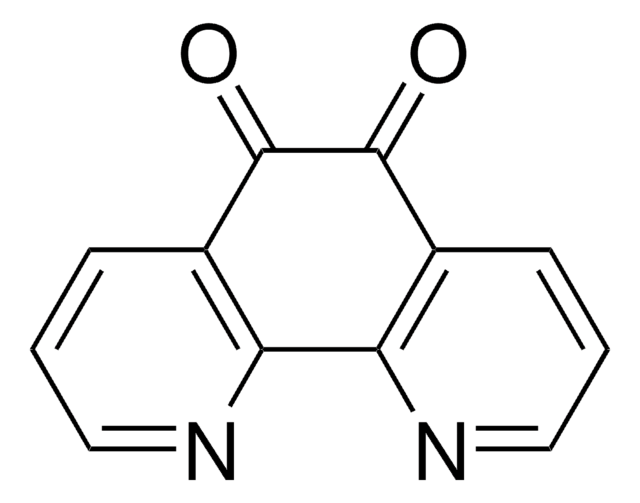H8509
β-Hydroxybutyrate Dehydrogenase from Rhodopseudomonas sphaeroides
Type V, lyophilized powder, 250-750 units/mg protein
Sinónimos:
(R)-3-Hydroxybutanoate:NAD+ oxidoreductase, 3-HBDH
About This Item
Productos recomendados
tpo
Type V
Nivel de calidad
formulario
lyophilized powder
actividad específica
250-750 units/mg protein
purificado por
chromatography
actividad extraña
lactate dehydrogenase ≤0.05%
malate dehydrogenase ≤0.1%
temp. de almacenamiento
−20°C
¿Está buscando productos similares? Visita Guía de comparación de productos
Aplicación
Acciones bioquímicas o fisiológicas
Definición de unidad
Forma física
Código de clase de almacenamiento
10 - Combustible liquids
Clase de riesgo para el agua (WGK)
WGK 3
Punto de inflamabilidad (°F)
Not applicable
Punto de inflamabilidad (°C)
Not applicable
Equipo de protección personal
Eyeshields, Gloves, multi-purpose combination respirator cartridge (US)
Certificados de análisis (COA)
Busque Certificados de análisis (COA) introduciendo el número de lote del producto. Los números de lote se encuentran en la etiqueta del producto después de las palabras «Lot» o «Batch»
¿Ya tiene este producto?
Encuentre la documentación para los productos que ha comprado recientemente en la Biblioteca de documentos.
Los clientes también vieron
Nuestro equipo de científicos tiene experiencia en todas las áreas de investigación: Ciencias de la vida, Ciencia de los materiales, Síntesis química, Cromatografía, Analítica y muchas otras.
Póngase en contacto con el Servicio técnico

